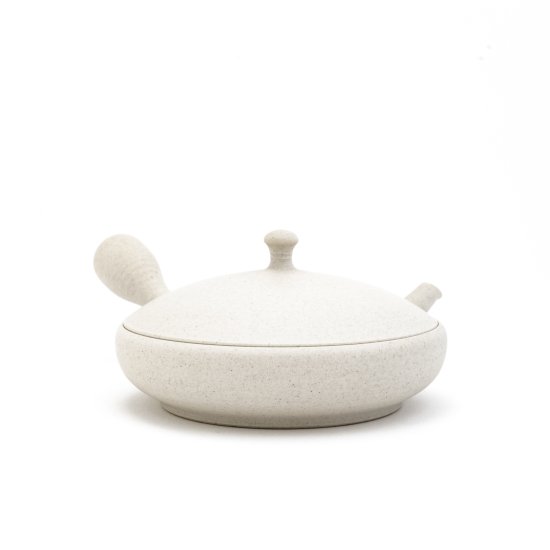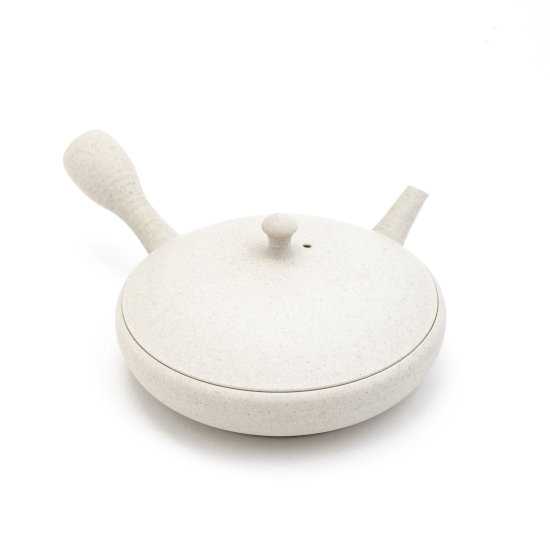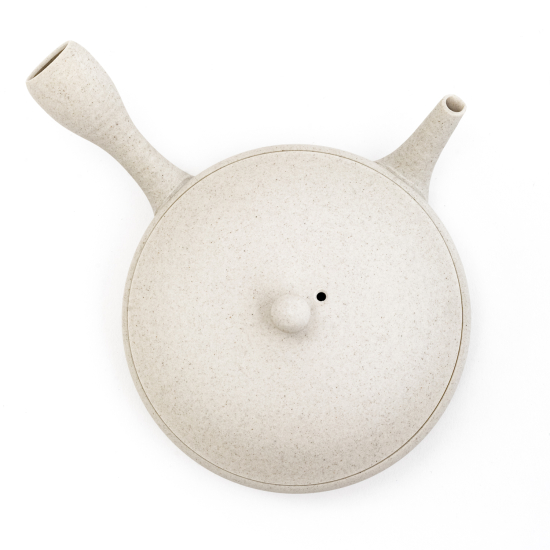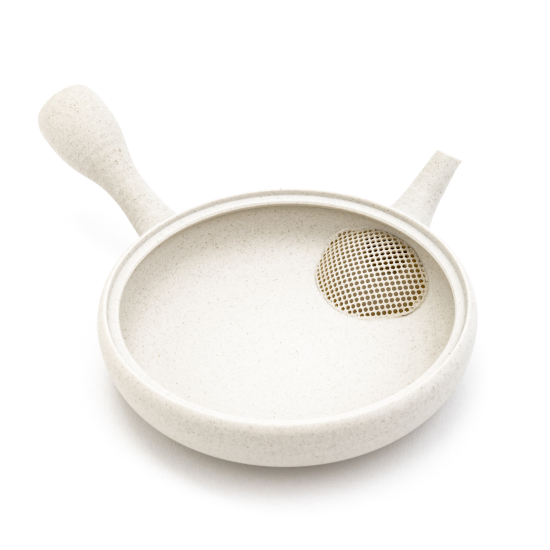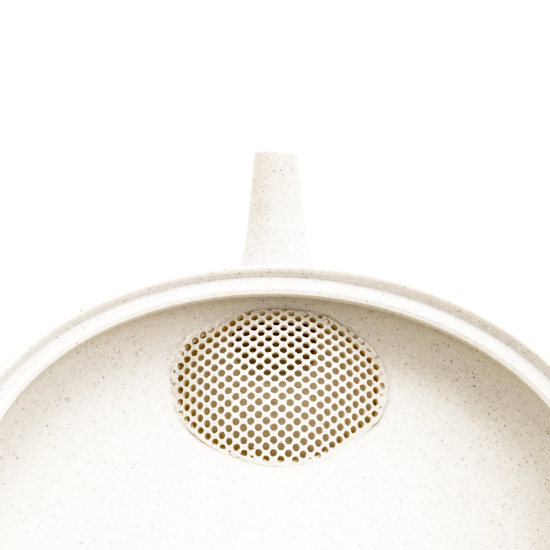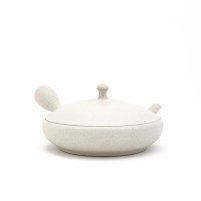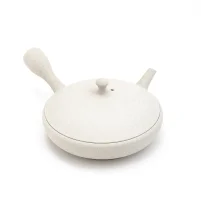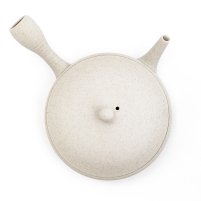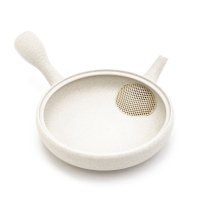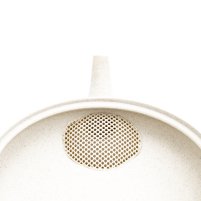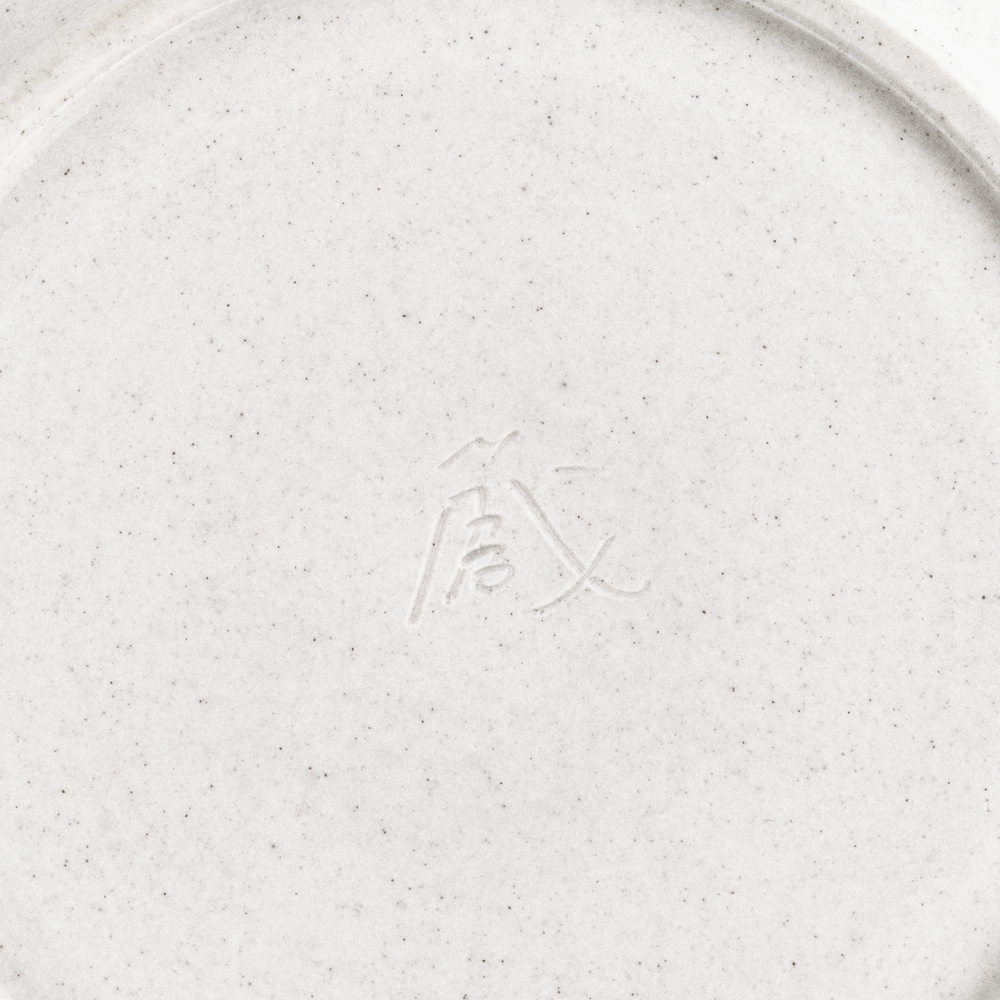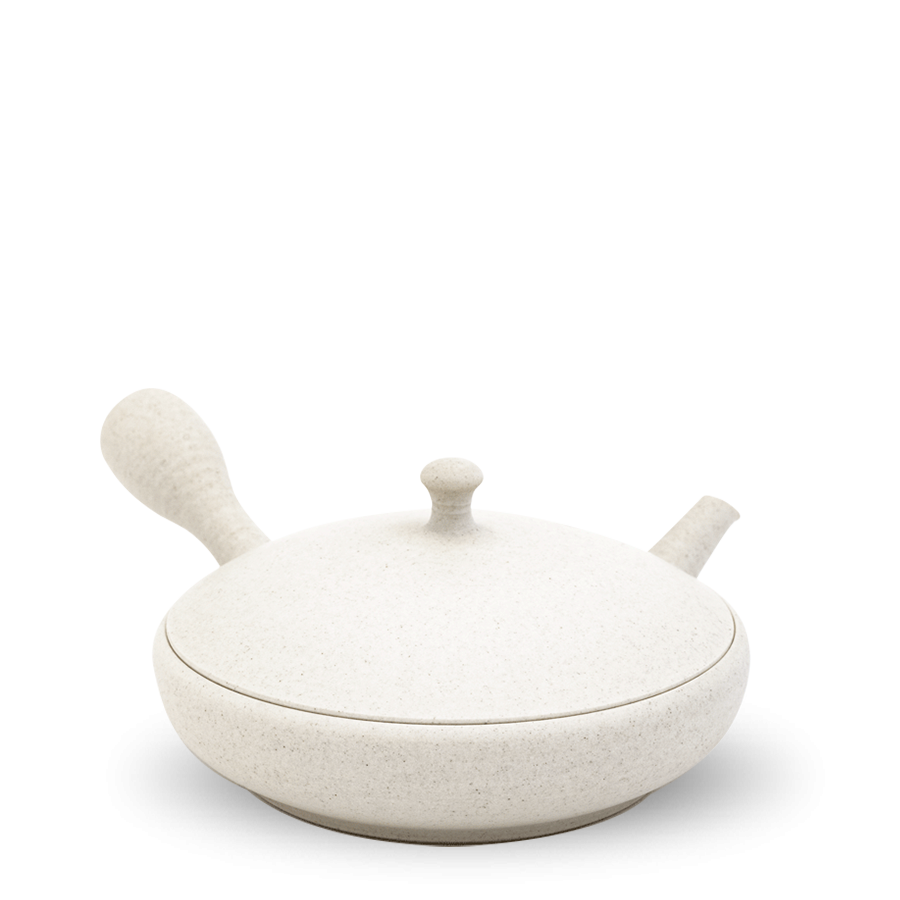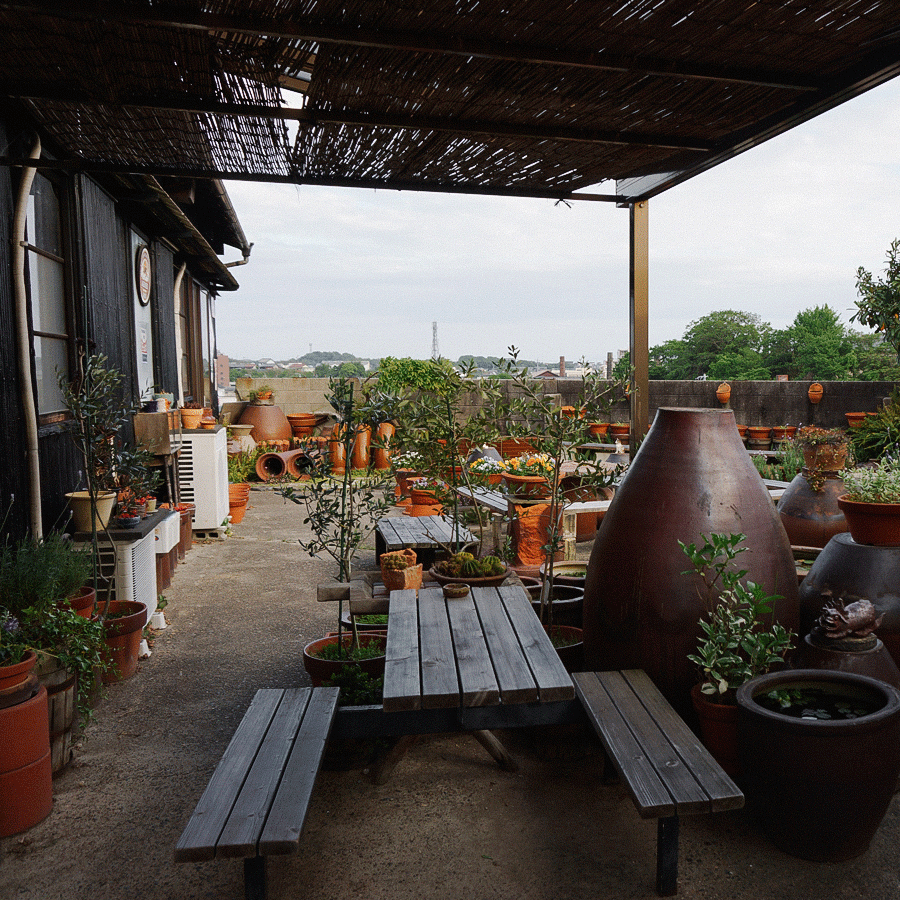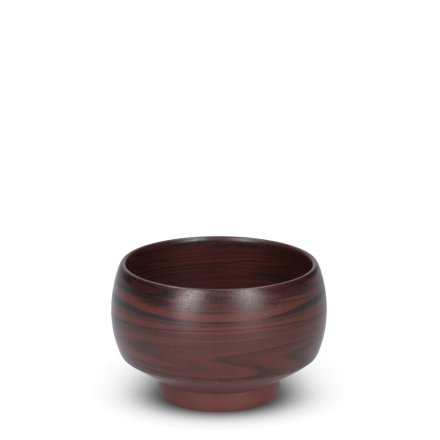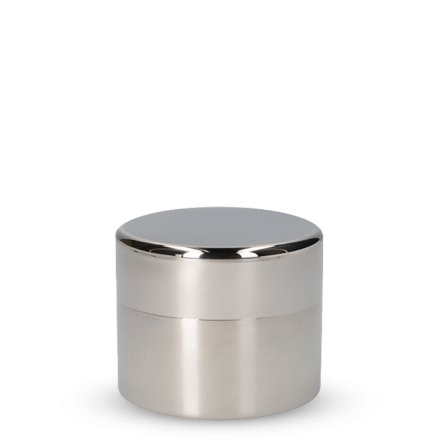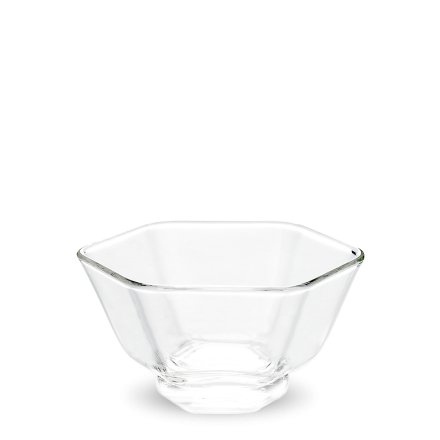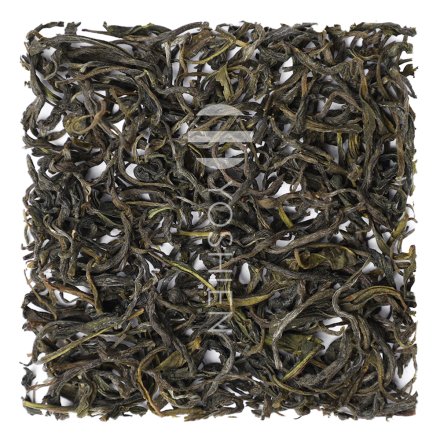As with all unglazed ceramics, wash with warm water and a soft cloth only. Do not use washing-up liquid or put in the dishwasher. Pat the outside dry with a towel and/or leave the Kyusu to air dry naturally with the lid off. If tea leaves get trapped in the filter, brush away with a soft brush.
Kyusu Tokoname
Shiro
Junzo Maekawa
SKU
7459
A sleek and contemporary white Kyusu teapot by the fourth generation Tokoname-yaki potter, Junzo Maekawa. The wide and shallow design is particularly suited for brewing fragrant green teas at lower temperatures, such as high quality Sencha, Gyokuro and Kabusecha.
| Product | Side-handle teapot, white |
| Origin | Tokoname, Aichi, Japan |
| Maker | Junzo Maekawa 前川淳蔵 |
| Volume | 100ml |
| Dimensions | Ø10.5cm x 4cm, handle 5cm |
| Material | Ceramic |
| Strainer | Ceramic |
| Artist mark | Signature on base |
| Packaging | Cardboard box |
Each piece is handmade and unique, therefore colour, volume and dimensions may vary slightly
In stock



